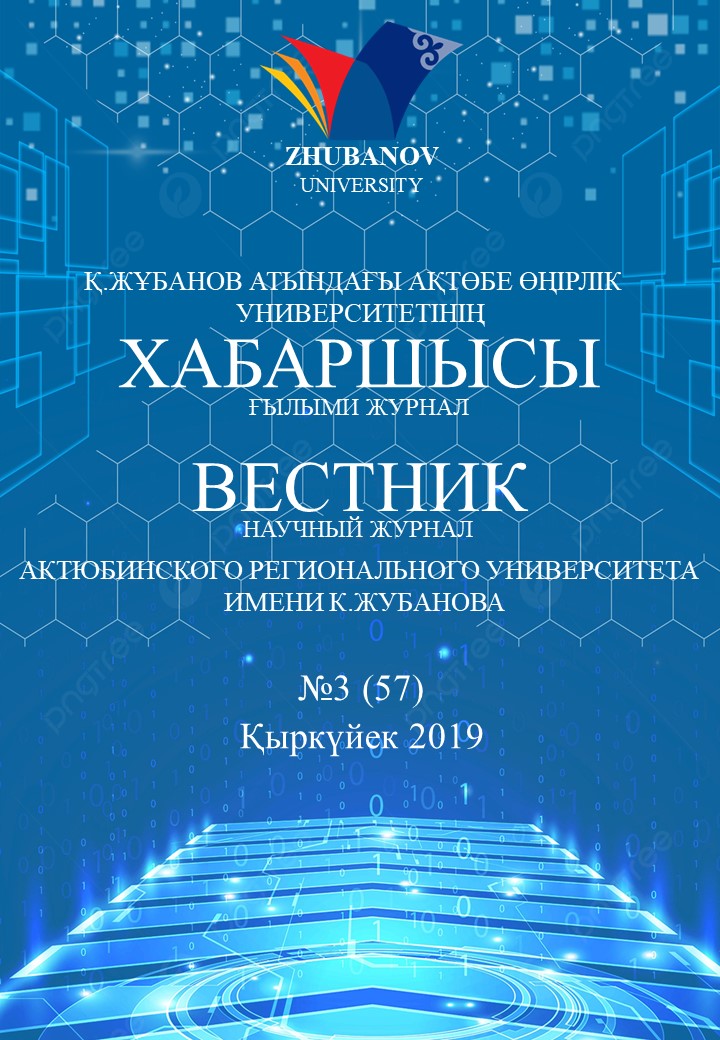Қашықтықтан оқыту әр күн сайын көбірек танымал болып келеді, сондықтан қазіргі кезде тереңірек талдау қажеттілік туып жатыр. Бұл мақала қашықтықтан оқытуды талдау барысында осы сұраққа жауап береді: дәстүрлі және қашықтықтан білім беру арасындағы айтарлықтай айырмашылық бар ма? Сондай-ақ, жұмыстың мақсаты - ұқсас тақырыптық зерттеулерді талдау арқылы талдаудың негізі мен критерийін дайындау, кейіннен Қазақстандағы жоғарғы сыныптар үшін қашықтықтан оқыту арқылы физиканы оқытудың тиімділігін зерттеу.
Т.Т. КАЙРМАГАМБЕТОВ
Астана Халықаралық Университеті (Нұрсұлтан, Қазақстан)
- Allen, I. E., Seaman, J., & Sloan Consortium. (2006). Growing by Degrees: Online Education in the United States, 2005. Southern Edition. Sloan Consortium.
- Crowley, C., Chen, H., & Cerver, M. G. (2018). A Team-Based Collaboration Used for the Development of Transnational Online Distance Education Courses. International Journal of E-Learning & Distance Education, 33(2).
- Ferguson, J. and Tryjankowski, A. M. (2009) ‘Online versus Face-to-Face Learning: Looking at Modes of Instruction in Master’s-Level Courses’, Journal of Further and Higher Education, 33(3), pp. 219–228.
- Harrison, R. et al. (2017) ‘A Cross-Sectional Study to Describe Academics’ Confidence, Attitudes, and Experience of Online Distance Learning in Higher Education’, Journal of Educators Online, 14(2).
- Kaiyrmagambetov, T. (2019). Retrieved February/March, 2019, from https://tiny.cc/timphysics
- Krämer, B. J. et al. (2015) ‘New Ways of Learning: Comparing the Effectiveness of Interactive Online Media in Distance Education with the European Textbook Tradition’, British Journal of Educational Technology, 46(5), pp. 965–971.
онлайн оқыту, қашықтықтан оқыту, технология, оқыту, білім, инклюзивті білім.
Дәйексөзді қалай келтіруге болады
ҚАЗАҚСТАНДАҒЫ ОРТА МЕКТЕП ОҚУШЫЛАРЫНА ҚАШЫҚТЫҚТАН ОҚЫТУ ЖӘНЕ АВТОМАТТЫ ЦИФРЛЫҚ ЖАУАП БЕРУ АРҚЫЛЫ ФИЗИКАНЫ ОҚЫТУДЫҢ ТИІМДІЛІГІН ЗЕРТТЕУ. (2024). "Қ. Жұбанов атындағы Ақтөбе өңірлік университетінің Хабаршысы" ғылыми журналы, 57(3). https://doi.org/10.70239/

